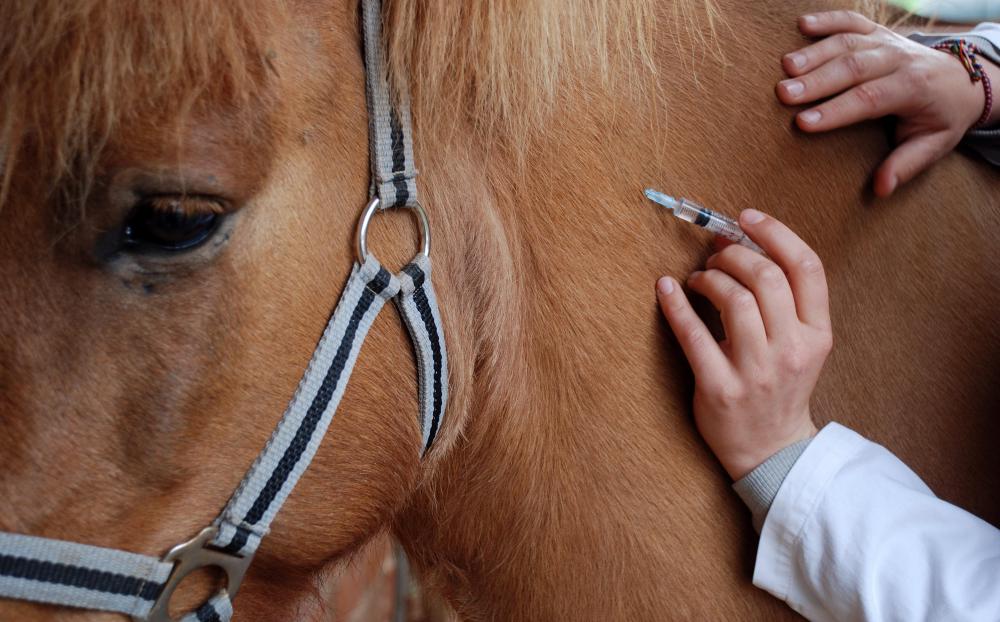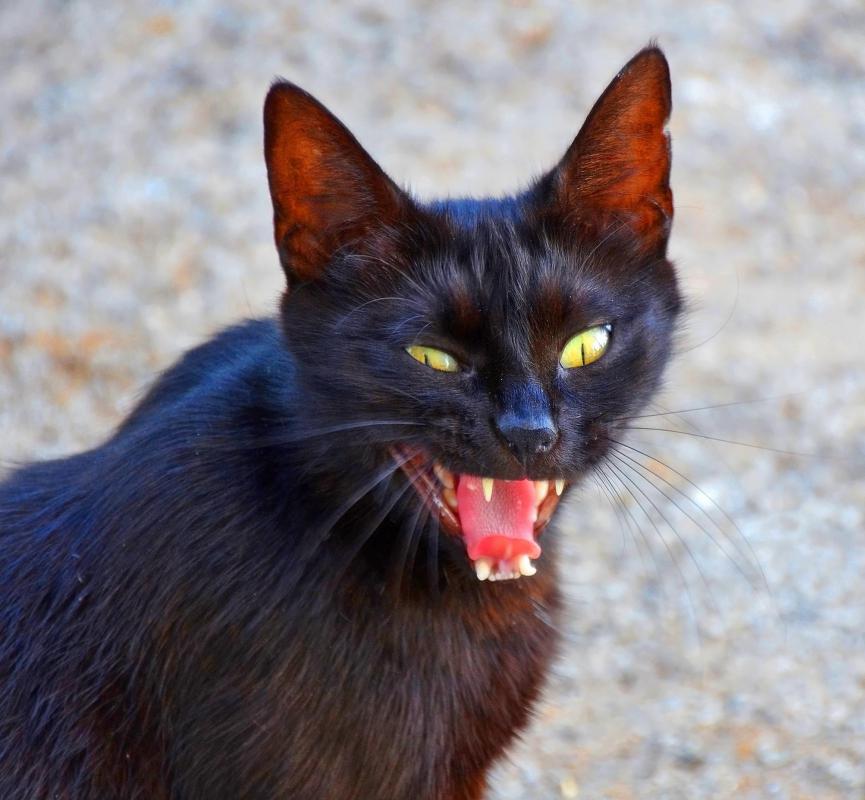At AllThingsNature, we're committed to delivering accurate, trustworthy information. Our expert-authored content is rigorously fact-checked and sourced from credible authorities. Discover how we uphold the highest standards in providing you with reliable knowledge.
What are Core Vaccines?
In the world of veterinary medicine, core vaccines are vaccines which are strongly recommended, and sometimes even required. Vaccine protocols for a wide range of animals including dogs, cats, and horses are typically divided between core and non-core vaccines so that veterinary practitioners can ensure that their patients get the vaccines they need. For pet owners, it is useful to know specifically that a recommended vaccine is a core vaccine, as this will emphasize the importance of receiving the vaccine, along with follow-up boosters.
In cats and dogs, rabies is probably the most common core vaccine, because rabies is viewed as a serious risk. In cats, the feline leukemia virus (FeLV) is another common core vaccine, especially for cats which go outdoors. Other core vaccines may be added to a vaccine schedule, depending on where the animal lives. In horses, diseases like sleeping sickness, west Nile virus, and tetanus are commonly included on lists of core vaccines.

By contrast, non-core vaccines are simply recommended, and they may not be necessary in all cases. Typically veterinarians use the regional guidelines issued by a professional association to decide which vaccines to administer, and they may discuss the non-core options with their clients. For example, if an animal boards a lot, getting a non-core vaccine for bordetella, also known as kennel cough, is advisable, but if an animal stays indoors and never boards, a bordetella vaccine would not be necessary.

Some regions of the world specifically require that animals receive certain core vaccines. The most common required vaccine is rabies, due to a desire to control the incidence of rabies worldwide. In countries where rabies is not present, such as Great Britain, all animals entering the country must come with paperwork indicating that they have received the rabies vaccine, and been tested to confirm the presence of antibodies. When discussing vaccination options, a veterinarian will usually make sure that owners know which core vaccines are required, and which are simply strongly recommended.

When evaluating which core vaccines should be included on a vaccine schedule, officials usually perform a cost-benefit analysis to determine if the benefit of the vaccines outweighs the risk of vaccination. While vaccinations are constantly growing safer, they do carry some health risks, and this analysis is designed to take that into account. Pet owners should always report adverse reactions to vaccines as quickly as possible, both for statistical reasons and to allow companies time to recall vaccines, if they determine that a lot has been compromised.
Frequently Asked Questions
What exactly are core vaccines for pets?

Core vaccines are immunizations considered essential for all pets due to the severity of the diseases they prevent and their potential to spread. For dogs, these typically include rabies, distemper, parvovirus, and adenovirus. For cats, the core vaccines are rabies, feline distemper (panleukopenia), feline calicivirus, and feline herpesvirus type I.
Why are core vaccines important for my pet's health?

Core vaccines protect against highly contagious and potentially fatal diseases. They are vital for your pet's health as they provide immunity that can prevent these diseases or reduce their severity. This not only protects your pet but also helps in controlling the spread of these diseases among other animals and, in the case of rabies, to humans.
How often do pets need to receive core vaccines?

The frequency of core vaccinations varies based on the specific vaccine, the age of the pet, and their health status. Puppies and kittens typically receive a series of shots starting at around 6-8 weeks of age, with boosters at one year. Afterward, many core vaccines are administered every 1-3 years, as recommended by a veterinarian.
Are there any risks associated with core vaccines?
While core vaccines are generally safe, as with any medical intervention, there is a small risk of side effects. These can range from mild reactions like soreness at the injection site to more serious, but rare, allergic reactions. The benefits of vaccination far outweigh the risks for the vast majority of pets.
Can indoor pets skip core vaccines?
Even indoor pets should receive core vaccines. Diseases like rabies can be transmitted through bats entering the home, and distemper or parvovirus can be brought in on shoes or clothing. Vaccinating indoor pets also ensures they're protected in case they accidentally escape or need to be boarded or hospitalized.
Is it legally required to vaccinate my pet with core vaccines?
Legal requirements for vaccinating pets vary by region, but rabies vaccination is commonly mandated by law due to its zoonotic potential, meaning it can be transmitted to humans. Check with your local regulations to ensure compliance, but remember that even non-mandated core vaccines are crucial for your pet's health.
AS FEATURED ON:
AS FEATURED ON:
















Discussion Comments
I was a little annoyed that my indoor cat was required to have a rabies vaccine, since the chance of her meeting, say, a rabid raccoon are vanishingly small. Not only does she run *away* from open door, but we live in an urban residential area! But the vet said they couldn't treat her at all unless we got the rabies vaccine.
Our vet said that there is one other vaccine that they recommend for indoor cats: feline distemper. She said that this is highly contagious and that even an indoor cat who lives alone can sometimes get exposed; the virus can linger on surfaces that look clean for a surprisingly long time. And we do occasionally have a cat sitter or board the cat, so it seemed sensible to get the vaccine. I'ven noticed our cat getting a cold when we use a professional cat sitter, so I know that germs are coming in with her.
Post your comments